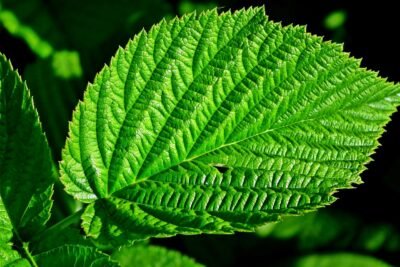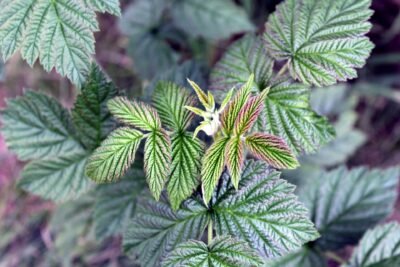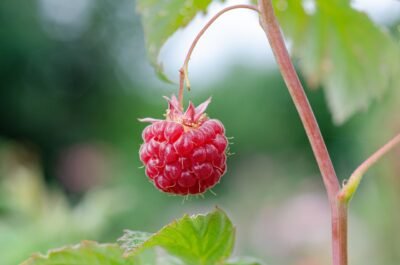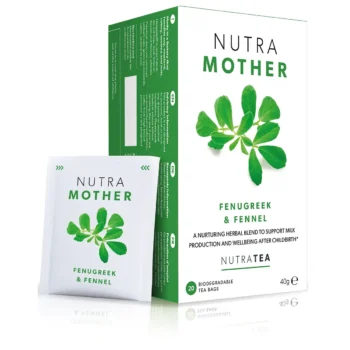Raspberry Leaf Supports a Healthy Uterus
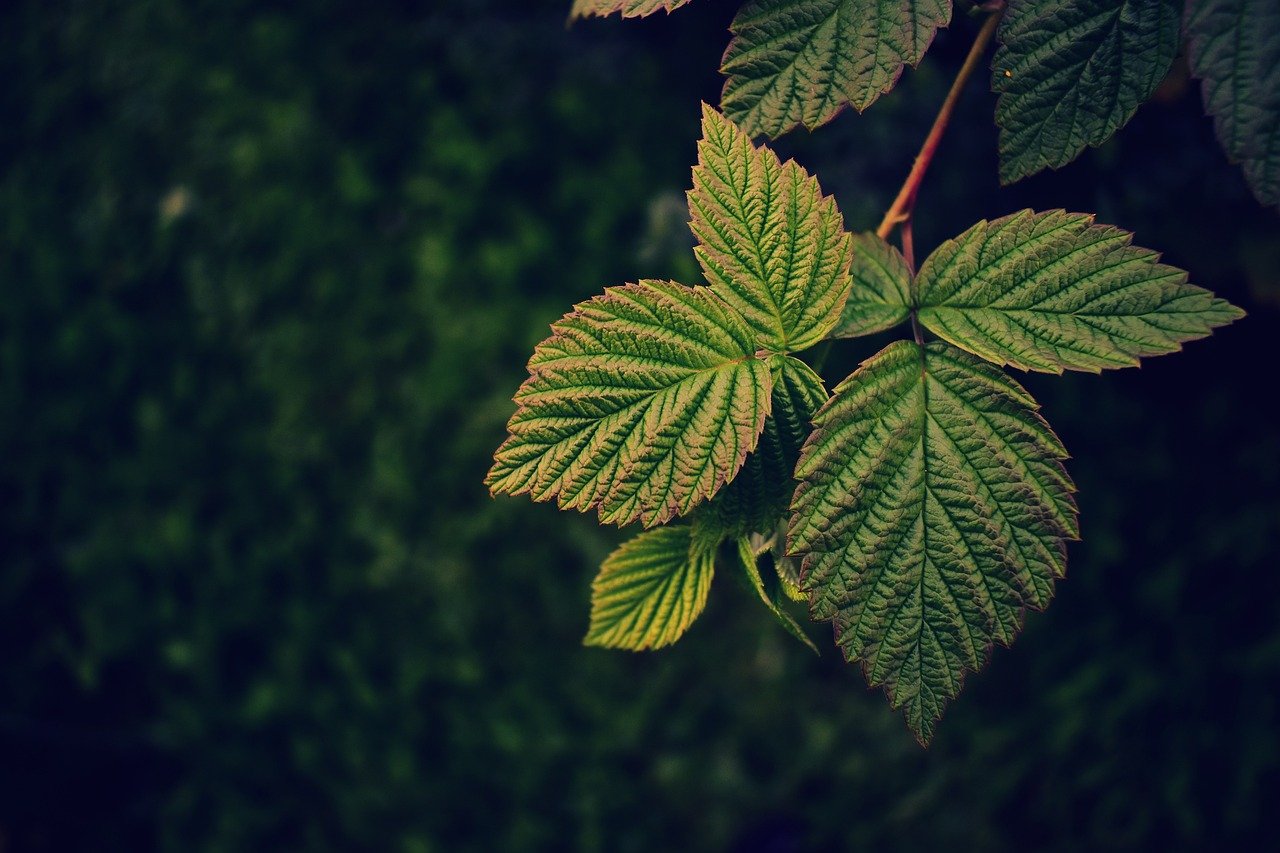
Raspberry (Rubus idaeus) leaf tea is a remedy famous for supporting pregnant women, new mothers, and menstruating women. It contains nutrients that boost health and fertility in people of all genders, but it is known as “the woman’s herb” for good reason. Raspberry leaf supports a healthy uterus by nourishing and strengthening the pelvic muscles, mostly thanks to its tannins and the alkaloid fragarine. The tea facilitates childbirth, making labor faster and easier. It also speeds postpartum uterine recovery. Leaves from the iconic berry bush reduce morning sickness and soothe menstrual cramping.
NutraTea’s Raspberry Leaf and Peppermint tea blend supports the womb muscles through every stage of pregnancy, provides antioxidants, and combats nausea.
The tea blend NutraMother also nourishes, reduces morning sickness, and supports uterine health. The whole herb is more potent than its isolated constituents, which makes its tea form the preferred way to consume raspberry leaf.
Enjoy 1-3 cups a day to reap all the medicinal benefits.
Raspberry leaves contain:
- Tannins: astringent compounds, which cause tissue to contract.
- Fragarine
- Antioxidants
- Vitamins C, E, A, B (B1, B2, B3, B6, and folate), magnesium, potassium, iron, and calcium.
Pregnancy
Raspberry leaf tea is a wonderful herbal ally for pregnant women. Contrary to myth, it does not induce labor. Rather, by increasing blood flow to the uterus, raspberry leaf supports a healthy uterus and easier childbirth. During childbirth, a series of strong and regular contractions enable a woman to push a baby out of her body. A ‘contraction’ is when the uterine muscles tighten and then relax. Tannins and fragarine both support a strong pelvic floor that can contract and relax as needed. Drinking raspberry leaf tea during pregnancy is linked to shorter labor and fewer interventions like C-sections and forceps during delivery. Supplementing with the tea, particularly in the third trimester, can reduce prodromal discomfort as well as the risk of postdates pregnancy.
Nausea and vomiting are common during pregnancy, particularly in the first trimester. Raspberry leaf tea’s tannins also help with digestive issues and reduce these symptoms. Its antioxidants lower inflammation, improving the health of mother and fetus. Women with gestational diabetes should take extra care to monitor glucose levels as there have been cases of hypoglycemia after consuming raspberry leaf tea.
Motherhood
All the properties that make raspberry leaf valuable during pregnancy continue to benefit women after they have given birth. The tannins in the leaves reduce postpartum bleeding and support the healing of the uterine tissue. Full of nutrients and antioxidants, raspberry leaf tea protects mothers from common deficiencies and inflammation.
Menstruation
Painful menstrual symptoms like cramps, diarrhea, and excessive bleeding meet their match with raspberry leaf tea. The tea calms spasming uterine muscles thanks to fragarine and tannins, which tone the smooth muscles of the pelvis, where the uterus resides. The astringency of tannins reduces diarrhea and excessive bleeding. The herb also offers vitamins and minerals which can help regulate a menstrual cycle that is irregular due to nutritional deficiencies. Raspberry leaf tea’s strengthening, anti-inflammatory, hormone-regulating effect on the uterus can provide relief for women with PCOS who experience irregular menstrual cycles and intense cramping.
Nutrition and Fertility
Sexual fertility is optimal when all a person’s nutritional needs are met. Raspberry leaf tea provides vitamins, minerals, and antioxidants that can boost the fertility and overall health of women and men.
Much More than a Berry
Rubus derives from the Latin word for ‘red’ and idaeus refers to the mythic origin of the raspberry plant on Mount Ida in Greece. Raspberry plants produce canes that live for two year, and are replaced by new canes. The leaves are compound with three or more toothed, hairy leaflets. Raspberry’s white or pink flowers have five petals. Raspberry’s beloved red fruit often steals the show, but the leaves offer medicinal properties that can’t be overlooked.
Raspberry Leaf and Peppermint and NutraMother
Herbalists at NutraTea blended raspberry leaves with peppermint for a tea that promotes an easy, relaxing pregnancy with optimal health outcomes for mother and baby. With new mothers in mind, our herbalists crafted NutraMother, a blend of raspberry leaf and other herbs that support the female reproductive system. Relax with a warm mug of raspberry leaf tea and remember, you’ve got this!

